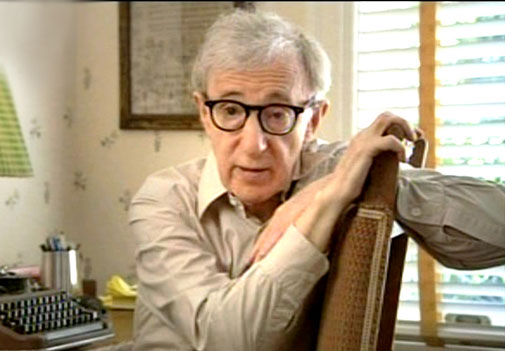
The upcoming PBS American Masters two-parter, Woody Allen: A Documentary, is getting a lot of attention and acclaim, and deserves it all.
Robert Weide's four-hour analysis of Allen's works, interests and obsessions is reviewed in depth by TVWW contributor Eric Gould in his latest Cold Light Reader column HERE.
I raved about it in my Thursday review on NPR's Fresh Air with Terry Gross, which I'll recap in a second. But here, I want to point out some other, additional things to anticipate and enjoy about this fine new TV biography...
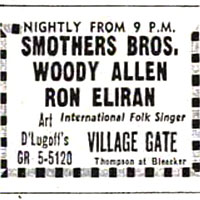
Woody Allen: A Documentary, broadcast Sunday and Monday at 9 p.m. ET (check local listings), is an arts biography of the most specific sort. If it informs, affects or exemplifies Woody Allen's art, then it's here: the filmmakers and musicians who inspired him, the TV personalities who hired him, the actors (and especially the actresses) who served, however briefly, as his Muse.
His early rise is so fast, it's almost comical -- but he didn't start as a comic, just a joke writer. But eventually, he was urged by his manager, Jack Rollins, to do standup, and, for a while, do anything else to get his name and face out there. Imagine my surprise, and delight, when a close-up of an early newspaper ad in this program showed Woody on the same bill as the Smothers Brothers.
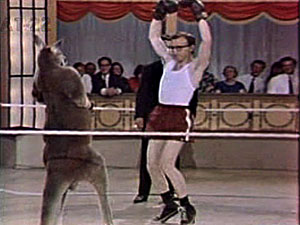
But that surprise, and delight, was nothing when compared to getting to see a TV clip, from the mid-Sixties, of a very young, very game Woody Allen boxing a kangaroo.
I mentioned that clip in my Fresh Air review, which you can listen to HERE -- but over to the right, you can see the visual evidence.
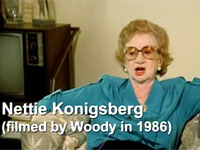 Also on Fresh Air, I played audio of Woody's mother, Nettie Konigsberg, being interviewed on camera in 1986 about her son -- and by her son.
Also on Fresh Air, I played audio of Woody's mother, Nettie Konigsberg, being interviewed on camera in 1986 about her son -- and by her son.
It's an unsettlingly open and honest and forthcoming soundbite, and if you wanted to know what she looked like, here she is, at right.
Much of Woody Allen: A Documentary, in fact, is visual. You have to see the Ingmar Bergman films beloved by Allen to know just inspired him -- and here, you do.
And when there's a detailed discussion about the famous therapy split-screen shot from Annie Hall -- the one where Woody's Alvy and Diane Keaton's Annie are shown in different therapists' offices, complaining about the number of times they make love each week (the joke: he thinks it's too little, she thinks it's too much, yet they agree upon the number) -- we get a visual punch line as well.
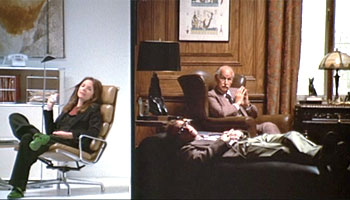
That split screen was done not by splitting the film frame in editing, but by building two sets side by side and lighting them differently to look like split screen.
If you find that fascinating, as I do, then this documentary is for you. If not, it might not be.
But if the the thought of any pompous professorial windbag has you replying, "You know nothing of my work!," as Allen conjured Marshall McLuhan to say in Annie Hall, then you need to see this.
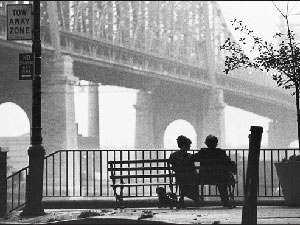
And if the sight of the bridge and the dawn in Manhattan has you humming Rhapsody in Blue, then this four-hour study is a TV program to treasure.
And now, Mr. Weide, would you please finish that documentary on Kurt Vonnegut you've been working on for decades? The quality, and creative insights, of Woody Allen: A Documentary only makes me more impatient to see it.